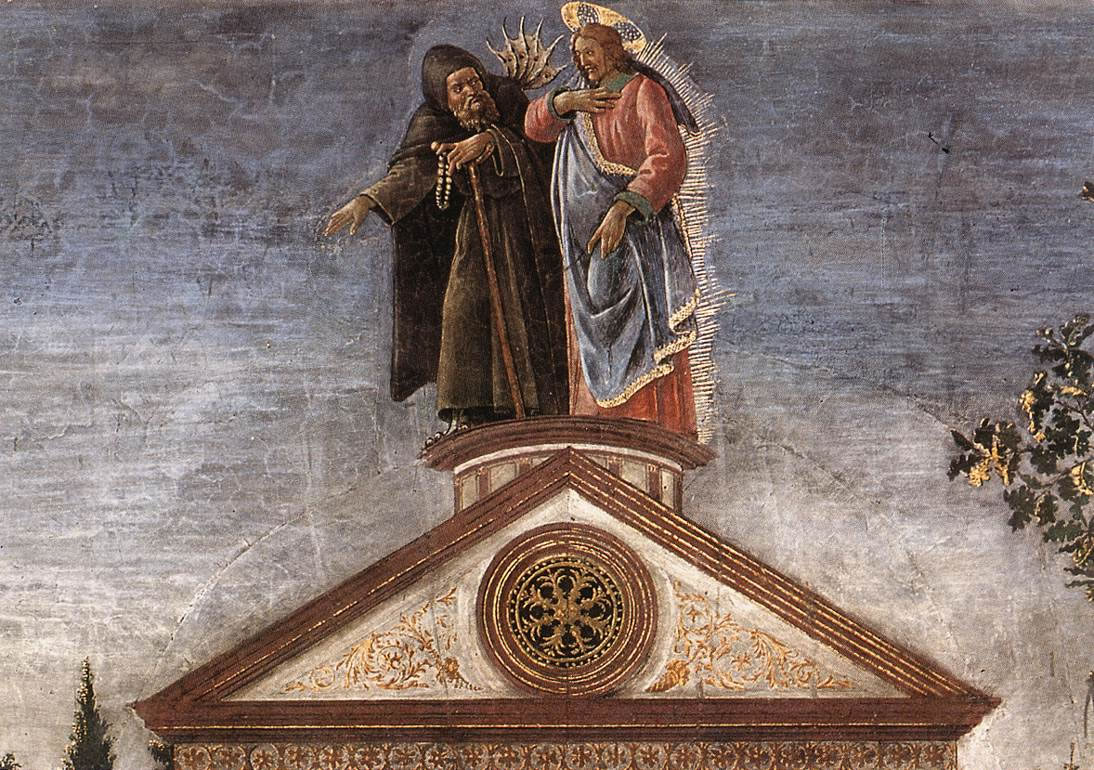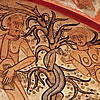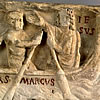How to quash temptation the way Christ did in the desert
During the first Sunday of Lent, we are presented with the temptation of Christ in the desert. (Matthew 4:1-11) In the Gospel, the devil uses his favorite tactics on Christ. Since Christ is sinless, he has no fissures the devil can peek into and exploit. So the devil uses the most obvious thing: Christ fasted for 40 days and he must be hungry. So the devil tempts Christ to use his power for selfish purposes of pleasure and self-satisfaction. Christ immediately parries with words from Deuteronomy. The devil then tempts Christ with the possibility of honor and recognition, for if he throws himself off the parapet of the Temple and God’s angels catch him, all there will recognize him as someone God loves for saving him. Once again, Christ fends off with words from Deuteronomy. Finally, when nothing seems to work, the devil promises riches if Christ worships him, and Christ squarely tells him to get lost.
What can we glean from this encounter? We can pull out three lessons. (There may be more for sure, but just three for this reflection.)
Lesson 1: If Christ was tempted, so will we.
In the Gospel of Matthew, it is interesting that the episode that immediately precedes Christ’s Temptation in the Desert, is his baptism. The juxtaposition of these two events is thought-provoking because if Christ who was baptized can get tempted, so can we. Our baptism, therefore, does not exempt us from temptation, but it certainly helps us fight it.
We say Christ is sinless, therefore if he was tempted, temptation cannot be a sin. The only time it becomes sinful is if we give in. So no matter how often, or how long, or if the temptation comes with physical pleasures, for as long as we do not give in to them, these temptations are not sinful.
Lesson 2: Do not engage in a conversation with the devil
The first reading that accompanies this particular Gospel is the story of The Fall. If we scrutinize it, we will find a big difference in the way Adam and Eve handled the devil as compared to how Christ did. The serpent asked Eve, “Did God really tell you to not eat from any of the trees in the Garden?” The devil is cunning (Genesis 3:1) and wants to create doubt in Eve’s mind with this question. Eve engaged him in a conversation. That was her mistake for it led her down the path of letting her trust in God die in her heart. This is a definition of Original Sin and every sin. In stark contrast, every time the devil tempted Christ, he parried right away. He did not enter into the conversation but stopped the temptation in its tracks.
We should learn from this! Every time we are tempted, we need to put an end to that conversation for if we do, we are not as cunning as the devil and we will almost certainly fall for his false promises. Instead, let us turn our gaze on the face of Christ to give us strength and to look at him who loves us unconditionally.
Let us be like Christ and tell the devil, “Get away, Satan!” The devil is a megalomaniac and three things can hurt his ego. First is if someone ignores him, and the second is if someone literally tells him to go away. In both cases, he flees lest his ego gets bruised. The third is humility because there is just no way a humble person will want anything the devil has to offer. He avoids someone like that because he knows his offers will be spurned and that too hurts his self-esteem.
Lesson 3: We need our guardian angels.
It must be puzzling to us that Jesus, who is God, had angels minister to him after the temptation. Scholars tell us that Christ had a brush with pure evil, and the angels were there to give him support. As a commentary, we are sure the angels were ministering to him the whole time for all angels belong to Christ (CCC § 331 ), but the Gospel was written in such a way so that we do not misconstrue that it was the angel’s triumph in fending of temptation, but Christ’s own.
This should remind us that there is a spiritual battle being waged against each soul. We should arm ourselves with graces from the sacraments. Confirmation gives us courage. The Eucharist nourishes our souls. Reconciliation increases our strength in spiritual battle. (CCC § 1496) Anointing of the Sick gives us the strength and courage to fight temptations especially in the face of death. (CCC § 1520)
We should also employ the aid of our spiritual warriors, our guardian angels. God gave each one of us a guardian angel that walks with us through our entire life (CCC § 336). Since all angels were created at once at the beginning of time, (CCC § 327) it means that God created each guardian angel at that moment too. The sublime implication is that each of our guardian angels waited for us to be born so they can minister to us. That’s how important they are to us in the infinite wisdom of God. It would be rude to ignore that one person who goes with us from the moment of our conception to the moment of our death. It would also be such a shame to ignore the natural and supernatural assistance our guardian angels are capable of doing for us; all we have to do is ask.
Let us, then, create a healthy relationship with our guardian angels so that we will eventually feel the gentle nudging they do. Let us ask for help for anything big and small. They will help us battle large temptations, and they can also help us find our lost trivial things (for they certainly know where we put them.) Talking to them often is the way to do this.
In Conclusion
We will certainly be tempted; no one is exempted. Let us fight the temptations by refocusing our attention, from them, to the face of Christ. And let us ask the help of our guardian angels who are so eager to lead us to life everlasting.

Beyond the Veil
Contemplating the Mysteries of the Holy Rosary
Prayer giants like Pope St. John Paul II, Pope Paul VI, Bl. Archbishop Fulton Sheen, and Bishop Robert Baron advocate that we contemplate on the mysteries of the rosary while we say the vocal prayers. Unfortunately, there are not many books that teach us how to do this. Beyond the Veil comes to the rescue by suggesting seven ways we can pray the rosary the way it was intended.
The larger part of the book offers mental images for each of the mysteries we can use in our contemplation, for how can we imagine the scenes in the rosary if we don't know about them?
Get your copy now either in Hardbound, Paperback, or Kindle

A Sky Full of Stars
Know Our Lady through her Titles in the Litany
The Church helps us understand who Mary is by honoring her with different titles in the Litany of the Blessed Virgin Mary. Unfortunately, over time and difference of culture, we might not grasp what it is the Church is ascribing to her and lose that opportinity to get to know her.
In A Sky Full of Stars, each title of the Litany is explained so we get know Mary more and fall in love with her all over again.
Get your copy now either in Hardbound, Paperback, or Kindle

100 Things Every Catholic Should Know
Whether or not you are new to the Catholic Church, or struggling, or lapsed, or dynamically involved, this book will enlighten you with the essentials of the Faith that have been handed down to us by the apostles.
Each of the 100 topics is easy to read and distilled into bite-sized portions. Through cross-referencing, the book also shows how the topics are interrelated. Those who are new to the Faith will find this book an edifying handy reference, and those who have simply forgotten will find it a great review material that might spark a new love for God and religion.
Get your copy now either in Hardbound, Paperback, or Kindle

Typology for Beginners
A Catholic Perspective on understanding the New Testament through the Old Testament
First-century Jews converted to Christianity in droves because of the way the New Testament was written to show Jesus was the Messiah promised by the Old Testament. We also learn about how Mary is the New Eve and the Ark of the Covenant in the way the writers portray her.
Through typology, the patterns that connect the Old and New Testaments make the Bible stories more accessible so that one becomes excited to read Sacred Scripture again.
Get your copy now either in Hardbound, Paperback, or Kindle
































